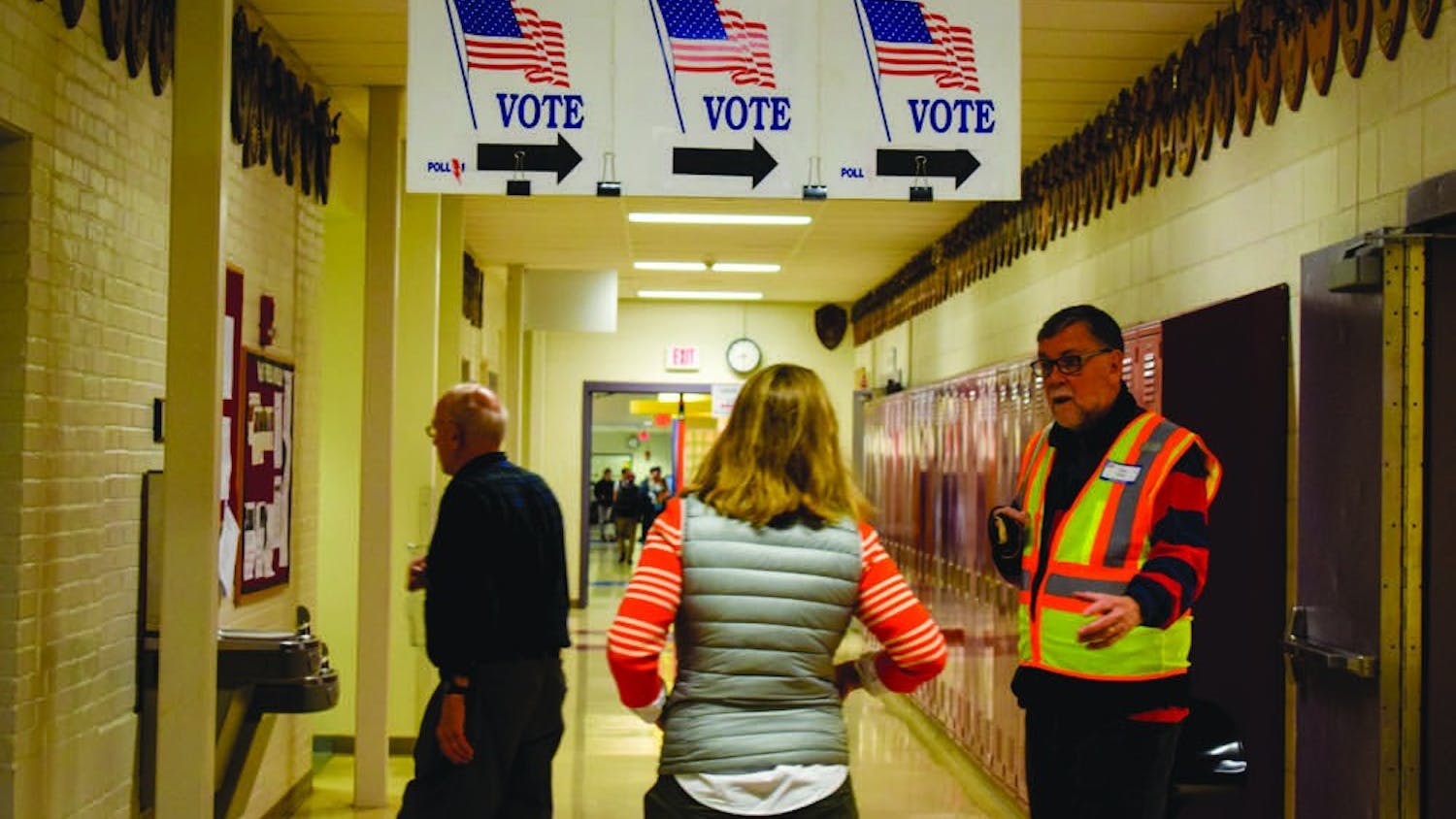As New Hampshire State Rep. Maureen Mooney R-Merrimack considers proposing a bill which would force Dartmouth to yield some control of its charter to the state of New Hampshire, Dartmouth's relationship to the state government is coming into question.
It's a relationship that has been closely monitored by the College, though; Dartmouth currently employs three lobbyists at the state level, according to the New Hampshire Department of State's list of lobbyists. The College's most recent tax records, for the year 2004, indicate that Dartmouth spent just over $74,500 supporting its lobbying efforts.
Only one of these three lobbyists, Ann McLane Kuster '78 of the Concord-based law firm Rath, Young and Pignatelli, is listed as working specifically for the interests of the undergraduate College.
Robert Donin, General Counsel for the College, noted that Kuster's services are not employed on a full-time basis.
"Like many organizations we utilize the part-time services of a law firm that monitors activities in state government that might impact or be of interest to the College, or to higher education generally," Donin said.
Donin said that the College's lobbyists focus particularly on any legislation pertaining to higher education or healthcare. For example, several years ago the College's lobbyists joined those from other institutions in opposing a bill which would have imposed a sales tax on meals served in college dining halls, he said.
Mooney's proposed bill, if introduced, would therefore seem a likely target for action from the College's lobbyists.
Donin, however, refused to speculate on whether the College would activate its lobbyists to fight the bill.
"We have not seen the text of the bill yet, and so I can't say," Donin said. "We will take a look at it when it's issued."
Once Mooney finishes drafting the bill she must submit it to the Office of Legislative Services, which will then work with the bill, Donin said. If the revised bill meets Mooney's approval, it can then be introduced to the state House of Representatives.
Kuster similarly said that she was unable to comment about the potential for action on the proposed bill.
New Hampshire State Rep. Andy Peterson '78, R-Peterborough, who cosponsored a 2003 bill that gave the College full control of its charter, said that he received support from Dartmouth during his efforts to secure the College's power over of its charter.
"The College was in favor and made their feelings known when I proposed the bill to separate these matters from the purview of the state legislature," Peterson said.
Peterson said that he would contest Mooney's bill, were it to be formally introduced.
"I did call her the other day and asked her in a friendly way to not proceed with this, because I do feel that the state government really should stay out of this kind of issue," Peterson said. "To have state governments in the middle in the affairs of a sovereign institution in this way is improper."
Peterson did note that he felt "sympathy for the position of the alumni."
In an earlier interview with The Dartmouth, Mooney said that she might move to sponsor the bill because of concerns over recent governance changes which have reduced the role of alumni in electing the College's trustees.
A Sept. 8 resolution by the Board of Trustees added eight charter trustee seats, leaving less than one-third of the board open to election by alumni. In response, the Association of Alumni has filed a lawsuit in an attempt to block the College from implementing the reforms.
Peterson said that efforts by the College in opposition to Mooney's bill would be justified.
"Dartmouth College has every right to advocate for what it perceives to be its best interests," Peterson said.
Peterson pointed to the College's history of fighting for its autonomy during the 1819 Supreme Court case Dartmouth College v. Woodward. In this now-famous case, Daniel Webster, a member of the class of 1801, argued that New Hampshire's reinstitution of the College's previously ousted president was unconstitutional.
"[Dartmouth has] every right to engage with issues that have to do with their ability to autonomously run one of the finest college in America," Peterson said.
The College's two other lobbyists, Gina Balkus '83 and Frank McDougall, work for the interests of Dartmouth-Hitchcock Medical Center and the Dartmouth Medical School. McDougall serves as government relations director for DHMC, while Balkus heads up the center's government relations in New Hampshire.
McDougall said that his work for the College focuses on the "three Rs": reimbursement, regulation and research money.
Dartmouth's lobbyists also work with the state government on the contract which allows DMS to manage the New Hampshire state psychiatric hospital.
Projects like this one, Donin said, indicate that Dartmouth's role in state government is often one of acting as a resource, rather than attempting to accrue benefits.
Donin pointed to the Rockefeller Center's Policy Research Shop, which provides legislators with research compiled by undergraduates, as another example of this relationship.



